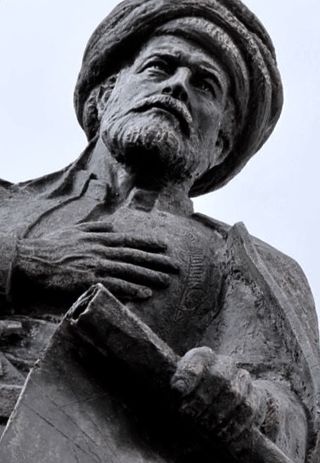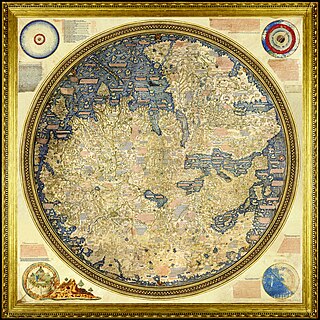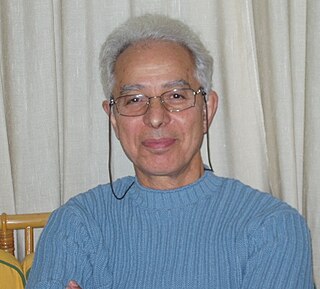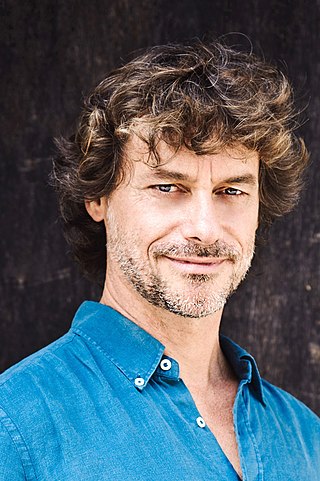Related Research Articles

Muhiddin Piri, better known as Piri Reis, was an Ottoman cartographer, admiral, navigator, corsair, and geographer. He is primarily known today for his cartographic works, including his 1513 world map and the Kitab-ı Bahriye, a book with detailed information on early navigational techniques as well as relatively accurate charts for their time, describing the ports and cities of the Mediterranean Sea.

Umberto Eco was an Italian medievalist, philosopher, semiotician, novelist, cultural critic, and political and social commentator. In English, he is best known for his popular 1980 novel The Name of the Rose, a historical mystery combining semiotics in fiction with biblical analysis, medieval studies and literary theory, as well as Foucault's Pendulum, his 1988 novel which touches on similar themes.

Eugenio Montale was an Italian poet, prose writer, editor and translator, recipient of the 1975 Nobel Prize in Literature and one of the finest literary figures of the 20th century.

Giovanni della Casa was an Italian poet, diplomat, clergyman and inquisitor, and writer on etiquette and society. He is celebrated for his famous treatise on polite behavior, Il Galateo overo de’ costumi (1558). From the time of its publication, this courtesy book has enjoyed enormous success and influence. In the eighteenth century, influential critic Giuseppe Baretti wrote in The Italian Library (1757), "The little treatise is looked upon by many Italians as the most elegant thing, as to stile, that we have in our language."

The Fra Mauro map is a map of the world made around 1450 by the Italian (Venetian) cartographer Fra Mauro, which is “considered the greatest memorial of medieval cartography." It is a circular planisphere drawn on parchment and set in a wooden frame that measures over two by two meters. Including Asia, the Indian Ocean, Africa, Europe, and the Atlantic, it is orientated with south at the top. The map is usually on display in the Biblioteca Nazionale Marciana in Venice in Italy.

Monselice is a town and municipality (comune) located in northeastern Italy, in the Veneto region, in the province of Padua about 20 kilometres (12 mi) southwest of the city of Padua, at the southern edge of the Euganean Hills.
Monselice is the most picturesque town I have seen in Italy. It has an old ruin of a castle upon the hill and thence commands a beautiful and extraordinary view. It lies in the wide plain – a dead level – whereon Ferrara, Bologna, Rovigo, Este, Padua stand and even Venice we could dimly see in the horizon rising with her tiara of proud towers. What a walk and what a wide delightful picture. To Venice 38 miles. Ralph Waldo Emerson Journals

Luigi Ballerini is an Italian writer, poet, and translator.
The earliest known world maps date to classical antiquity, the oldest examples of the 6th to 5th centuries BCE still based on the flat Earth paradigm. World maps assuming a spherical Earth first appear in the Hellenistic period. The developments of Greek geography during this time, notably by Eratosthenes and Posidonius culminated in the Roman era, with Ptolemy's world map, which would remain authoritative throughout the Middle Ages. Since Ptolemy, knowledge of the approximate size of the Earth allowed cartographers to estimate the extent of their geographical knowledge, and to indicate parts of the planet known to exist but not yet explored as terra incognita.

Kyriakos Charalambides is one of the most renowned and celebrated living Cypriot poets. His poetry, essays, translations, and critical analysis celebrate the ideas of Western civilisation, expressed through the language and history of Greek culture. His poetic opus adds to the tradition established by such modern Greek poets as Constantine P. Cavafy, Giorgos Seferis and Odysseas Elytis. His poetry though holds steadfastly to the Greek Cypriot linguistic register.

The Geography, also known by its Latin names as the Geographia and the Cosmographia, is a gazetteer, an atlas, and a treatise on cartography, compiling the geographical knowledge of the 2nd-century Roman Empire. Originally written by Claudius Ptolemy in Greek at Alexandria around 150 AD, the work was a revision of a now-lost atlas by Marinus of Tyre using additional Roman and Persian gazetteers and new principles. Its translation – Kitab Surat al-Ard – into Arabic by Al-Khwarismi in the 9th century was highly influential on the geographical knowledge and cartographic traditions of the Islamic world. Alongside the works of Islamic scholars – and the commentary containing revised and more accurate data by Alfraganus – Ptolemy's work was subsequently highly influential on Medieval and Renaissance Europe.

Mary de Rachewiltz is an Italian-American poet and translator. She is the daughter of the American poet Ezra Pound, whose The Cantos she translated into Italian. Her childhood memoir Discretions was published in 1971.

Portolan charts are nautical charts, first made in the 13th century in the Mediterranean basin and later expanded to include other regions. The word portolan comes from the Italian portolano, meaning "related to ports or harbors", and which since at least the 17th century designates "a collection of sailing directions".

Gianni Celati was an Italian writer, translator, and literary critic.

The Bianco World Map is a map created by Andrea Bianco, a 15th-century Venetian sailor and cartographer who resided on Chios. This map was a large piece of a nautical atlas including ten pages made of vellum. These vellum pages were previously held in an 18th-century binding, but the current owner, Venetian library Biblioteca Marciana, separated the pages for individual exhibition.

Alberto Angela is an Italian paleontologist, writer and journalist. Angela is a famous history and science communicator in Italy.

Enrique Vila-Matas is a Spanish author. He has authored several award-winning books that mix genres and has been branded as one of the most original and prominent writers in the Spanish language.

"Majorcan cartographic school" is the term coined by historians to refer to the collection of predominantly Jewish cartographers, cosmographers and navigational instrument-makers and some Christian associates that flourished in Majorca in the 13th, 14th and 15th centuries until the expulsion of the Jews. The label is usually inclusive of those who worked in Catalonia. The Majorcan school is frequently contrasted with the contemporary Italian cartography school.
A rutter is a mariner's handbook of written sailing directions. Before the advent of nautical charts, rutters were the primary store of geographic information for maritime navigation.
Tom Clark Conley is an American philologist. He is Lowell Professor in the Departments of Romance Languages and Visual and Environmental Studies at Harvard University where he studies relations of space and writing in literature, cartography, and cinema. He and his wife Verena are Faculty Deans of Kirkland House.

Andrea Bianco was an Italian navigator and cartographer who resided on Chios.
References
- ↑ Michalli da Ruodo. 1434-45. Book. 440 pp. Republic of Venice - in present-day Venice, Italy (in Venetian dialect). Published in: Long, P.O.; McGee, D.; and Stahl, A.M. (eds., trs.). 2009. Michael of Rhodes. The Book of Michael of Rhodes. 3 vols. MIT Press, Cambridge, MA, USA. Available: http://brunelleschi.imss.fi.it/michaelofrhodes.
- 1 2 "Piero Falchetta BIBLIOGRAFIA" (PDF) (in Italian).
- ↑ Monselice Literary Prizes Archived 2011-08-07 at the Wayback Machine